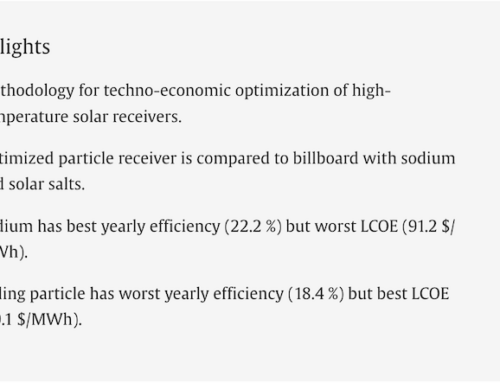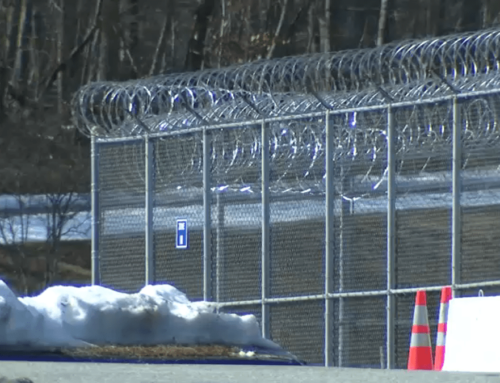BlackRock CEO Larry Fink: I’m buying up ‘undervalued’ UK assets
April 24, 2025
BlackRock CEO Larry Fink: We’re investing in ‘undervalued’ Britain
exclusive
Larry Fink praised the government’s pro-growth agenda and said many British stocks were at ‘too deep’ a discount
Thursday April 24 2025, 8.00pm, The Times
BlackRock, the world’s largest investor, has been buying billions of pounds of UK assets that it believes are “undervalued”.
Larry Fink, chairman and chief executive of BlackRock, has revealed that the fund manager has been building positions in UK assets “across the board” having been reassured by the early rhetoric from the government of Sir Keir Starmer.
“[We] have allocated more capital back to the UK tactically now with the belief that in the short run, the new administration is trying to tackle some of the hard issues,” he told The Times. “I think the prime minister is articulating the needs of what we have to do.”
He added that he was more confident about the investment prospects for the UK than this time last year, at the tail-end of Rishi Sunak’s administration. “I have more confidence in the UK economy today than I did a year ago.”
BlackRock runs $11.6 trillion of money on behalf of pension funds, retail clients and sovereign wealth funds and has about £570 billion of UK assets, including in shares, bonds and infrastructure such as Gatwick Airport.
Fink, 72, said he was reassured by what he said was “a capitulation moment” across Europe — including in the UK — where governments recognised that their problems were so severe that there had to be a change of path and more emphasis on growth.
“It just resonated with me — that there are so many fundamentally strong attributes about the UK and Europe and they’ve been so smothered by over-regulation, by too much control,” he said. “And to me, it was just very clear we were at a capitulation point.”
Fink had positive words for Rachel Reeves’s government
HOLLIE ADAMS/BLOOMBERG/GETTY IMAGES
He pointed to the increased speed of decision-making at the Competition and Markets Authority as an example of a more pro-growth agenda in Whitehall. “I don’t know what’s changed it, but it’s a good change.”
• The Times view: Rachel Reeves still has time to change course on the economy
He also said one of the attractions of UK assets was that they were so cheap. “So many of the UK stocks discounts were too deep, especially like in the banking system. Look at the rebound in the valuations of NatWest and Lloyds and how they bounced.” St James’s Place, another FTSE 100 stock, was another “very good rebound”, he said.
“We added to our positions across the board with the idea that we believe the market was discounting too much negativity,” Fink said. “And we believe the negativity was probably not warranted.”
He acknowledged that some British business leaders were not so confident, discouraged by the government’s recent imposition of higher employers’ national insurance payments and the pushing ahead of legislation to increase employee rights.
“I’ve heard that message, but I’m looking at the bigger macro picture and, you know, there are so many opportunities investing in infrastructure here in this country.”
• BlackRock boss warns protectionism ‘has returned with force’
In a wide-ranging interview, Fink described the market volatility created in the past few weeks by President Trump’s unpredictable plans for tariffs and his attacks on the US Federal Reserve chairman, Jerome Powell, as chaos. “There’s so much greater uncertainty … but our job is to look through the chaos and find opportunities.”
“Markets are telling us that we could see recession [in the US] in the short run,” Fink said. “And markets are also now becoming a little more fearful that we’re going to see rising inflation.”
Fink says investors shouldn’t trust the Davos consensus
STEFAN WERMUTH/BLOOMBERG/GETTY IMAGES
Sitting below an Edward Seago painting of Battersea Power Station — the art deco landmark built by the London Power Company in the 1930s — Fink is extolling the virtues of investing in infrastructure.
“There are so many opportunities here in this country,” says Fink, the co-founder, chairman and chief executive of BlackRock, the largest asset manager in the world. Too much “frightened” money was sitting unproductively in bank accounts when, with a bit more optimism, it could be channelled into projects such as power grids, railways or AI data centres, he says.
The painting, which adorns the wall of the meeting room on the 13th floor of the BlackRock office in the City of London, is a reminder of the long-term nature of investment. Construction of Battersea started in 1929 and the final phase was not completed until 1955.
The UK authorities today need to be speedier than that. “There’s an urgency to make these decisions so we can then get the economy unlocked and we can put more investment dollars to work,” Fink, 72, says. “If you know you have to wait one year to get a decision versus five years or ten years, it really transforms the investment return.”
He’s in London to investigate opportunities and sees plenty of them, he says. He’s unrattled for a man who has seen 15 per cent, or about $19 billion, wiped from the value of his fund management company in the past two months as markets have been sent diving by the unpredictable President Trump.
He says the present market turbulence — which he believes reflects growing fears of a recession and rising inflation in the United States — may not matter in the short term, but will if it continues.
“One day doesn’t matter. One week doesn’t matter. Over a period of time, it’s going to start mattering. That’s why I love markets: markets don’t lie. They may be wrong. Markets can always be wrong in the short run, but in the long run they’re never wrong.
“Markets are bigger than anybody. Markets are bigger than any one country in the long run. And so the markets to me are the true test, true barometer, especially for economies that are based on deficit financing, like the UK and the United States.
“As one of your former prime ministers [Liz Truss] learnt, markets are an incredibly good test. And that’s what I try to tell every political leader. Markets over the long run don’t lie.”
The key, he says, is looking through the noise. “I keep on trying to tell everybody at BlackRock, with chaos comes opportunity. So let’s look beyond the noise. And there’s a lot of noise.”
Gatwick Airport is among BlackRock’s many UK investments
GETTY IMAGES
Right now, the markets are suggesting that the US could experience a recession in the short term and rising inflation, he says. Tariffs will be inflationary and reshoring manufacturing to the US will be inflationary, as will shutting the borders to immigrants.
“We’ll see how this all plays out over the next six to eight weeks [when relevant inflation figures start to be published]. Are we going to see a spike in inflation?” He leaves the question unanswered, but is worried that no one has properly addressed the costs of rising protectionism. “Populism is inflationary,” he adds.
A modest move towards protectionism might be valid, but the move to higher tariffs was “being done in such a radical way and with such speed”, he adds.
Asked whether President Trump’s attacks on Jerome Powell, the independent chairman of the US Federal Reserve, damaged the US, Fink said: “Let’s say in the short run it doesn’t feel right. It doesn’t feel good. The most important thing is for BlackRock to make sure we’re above all that. Our job is to be working with our clients above all that.”
Trump, 78, said last week that Powell, 72, whom he originally appointed, was “a loser” and “his termination cannot come too soon”, sending US stocks and the dollar plummeting, but he later rowed back, saying he had “no intention” of firing him.
A convert to the potential benefits of cryptocurrencies, Fink says he is “disappointed” by how they have behaved in the past few weeks. “Bitcoin is a fear asset. You own it because you’re frightened of the debasement of your currency. And there’s a lot of fear of the debasement of currency right now. So, you would have thought that bitcoin would have rallied quite a bit.” It hasn’t, or at least not until the past few days.
He is relieved that Trump has not thus far acquired crypto for US reserves. That would be dangerous, he says. “If we ever, if the world ever, believes that there is a better alternative than the dollar as a reserve currency then the dollar sanctity is in trouble.”
Perhaps surprisingly, Fink considers birthrates to be a key economic indicator.
“There’s still a lot of money sitting in bank accounts. If we could translate that into optimism and we could put that money back into building out infrastructure here in the UK and in Europe we could build a better future for our young and build back hope.
“The best expression of hope is birthrates. Let’s be clear, more and more people are having smaller and smaller families. Why is that? It’s not just because they’re hedonistic. There’s less hope.”
At the start of the year business leaders and bankers at the annual meeting of the World Economic Forum lined up to heap praise on Trump and his promises to usher in a new golden age of deregulation and lower taxes. Fink was one of the few to strike a more cautious note.
“You always invest against the consensus of Davos. You go to Davos to learn consensus. You invest against it and you make money.
“I came away thinking there was too much enthusiasm towards the US; not enough focus on other places in the world. That’s what I said. We had two record years for the stock market. And everyone was saying we’re going to have a third. That doesn’t happen that often.
“There was just so much enthusiasm. Once it’s a consensus, you know it’s wrong.”
Search
RECENT PRESS RELEASES
Related Post









